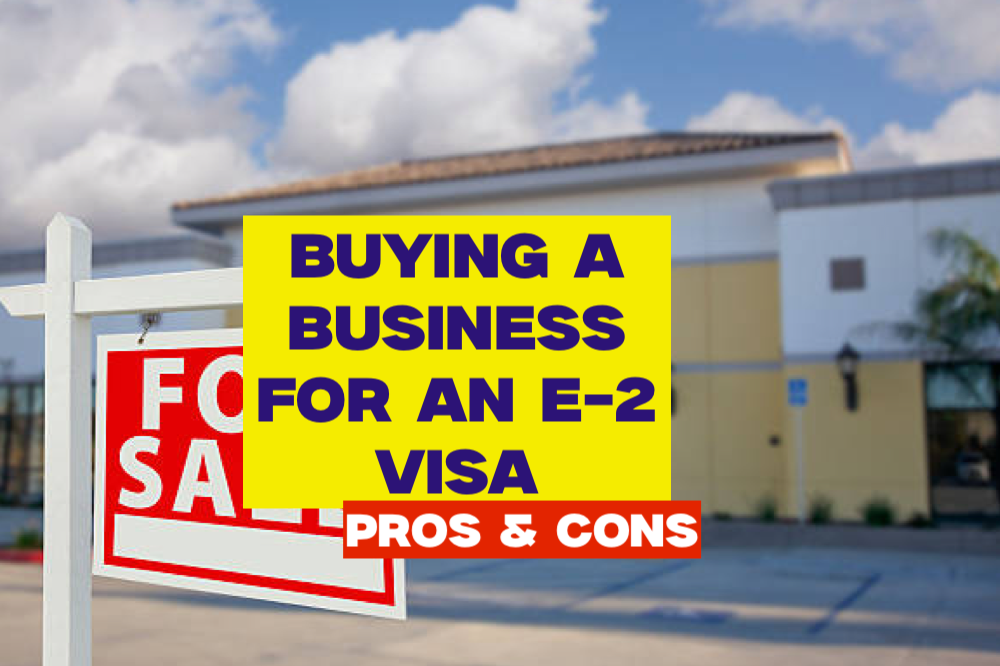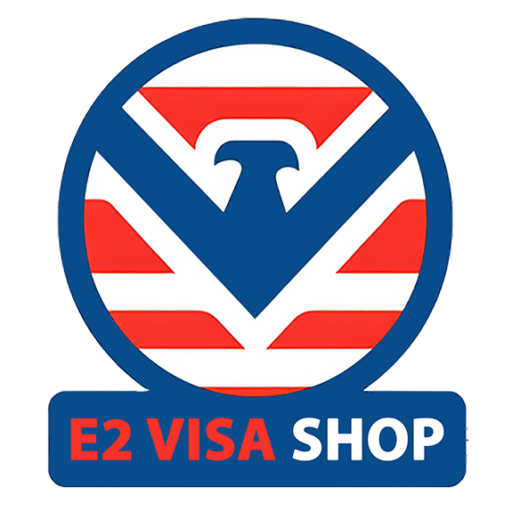
For many foreign investors, the E-2 visa offers a compelling opportunity to live and work in the United States by investing in and operating a business. Unlike the EB-5 visa, which requires a significant capital investment, the E-2 visa allows for a more accessible path through a “substantial” investment in a viable enterprise. One of the most strategic ways to qualify for an E-2 visa is by purchasing an existing business rather than starting one from scratch. Here’s a step-by-step guide to successfully buying a business for an E-2 visa, including the benefits and challenges involved.
Step 1: Selecting the Right Type of Business
Before diving into business listings, investors must determine the type of business they want to acquire. This decision should align with the investor’s skills, experience, financial resources, and long-term goals. Some factors to consider when selecting a business include:
- Industry Viability: Service-based businesses, franchises, retail stores, and manufacturing companies are popular choices for E-2 visa applicants. The business should have long-term profitability and growth potential.
- Scalability: Some businesses, such as tech startups, can be difficult to justify under the E-2 visa due to their unpredictable cash flow and long development cycles. A well-established business with steady revenue is often a safer option.
- Hands-on Involvement: The E-2 visa requires active management of the business. This means that passive investment opportunities, such as real estate holdings, do not qualify.
- Location Considerations: Choosing a business in a strategic location with high customer traffic can be crucial to its success. Factors like local competition, labor availability, and community demographics should also be considered.
Step 2: Selecting Specific Businesses to Buy
Once the investor has identified a suitable business type, the next step is to search for available businesses that meet the E-2 visa criteria. Here are some avenues to explore:
- Business Brokers: Brokers specialize in helping buyers find businesses that match their investment profile. They also facilitate negotiations and due diligence.
- Online Marketplaces: Platforms such as BizBuySell, BusinessBroker.net, and LoopNet feature thousands of businesses for sale across various industries.
- Franchise Opportunities: Many investors opt for franchise businesses, as they come with a proven business model and established brand recognition.
- Private Sales & Networking: Word-of-mouth referrals and local business connections can help investors find off-market deals that are not publicly listed.
Step 3: Negotiating Terms and Purchase Price
Once a suitable business is identified, the negotiation process begins. Investors must carefully structure the deal to meet E-2 visa requirements while ensuring financial feasibility. Key negotiation points include:
- Purchase Price: The business should have a justifiable market value. Investors must ensure the price reflects the company’s profitability, assets, and growth potential.
- Financing Structure: While loans and seller financing can be used, the investor must show that they are putting a significant portion of their own funds at risk.
- Lease Agreements: If the business operates from a leased location, negotiating favorable lease terms is crucial.
- Transition Period: Sellers often stay on for a transition period to help the new owner adapt to the business. This can be beneficial for E-2 visa applicants.
Step 4: Conducting Due Diligence
Due diligence is one of the most critical phases of the acquisition process. It ensures that the investor is making an informed decision and minimizes financial and legal risks. Areas of focus include:
- Financial Statements: Reviewing tax returns, profit and loss statements, balance sheets, and cash flow reports to verify the business’s financial health.
- Legal Compliance: Ensuring that the business has the necessary licenses, permits, and no outstanding legal disputes.
- Employee and Payroll Records: Understanding workforce liabilities, wages, and employee contracts.
- Contracts and Agreements: Reviewing vendor contracts, supplier agreements, and franchise agreements (if applicable).
- Client Base & Reputation: Investigating the business’s standing in the market, customer reviews, and retention rates.
Step 5: Closing the Deal
After successfully negotiating and conducting due diligence, the final step is closing the transaction. This typically involves:
- Signing the Purchase Agreement: A legal contract that finalizes the transfer of business ownership.
- Transferring Business Assets: Includes intellectual property, customer lists, and physical inventory.
- Updating Business Registrations: Transferring business licenses, tax IDs, and state registrations to the new owner.
- Finalizing Visa Application: With the business purchase complete, the investor can now proceed with the E-2 visa application, presenting the purchase documents as proof of a substantial investment.
Pros and Cons of Buying a Business for an E-2 Visa
Pros:
- Faster Startup Time: Unlike a new business, an existing business already has operations, cash flow, and a customer base.
- Easier Visa Approval: Immigration officers are more likely to approve an E-2 visa for a business with proven profitability and job creation potential.
- Less Uncertainty: Investors gain immediate access to financial records, helping them assess the business’s viability before committing.
- Established Market Presence: A business with a strong reputation can help the investor transition smoothly without the struggles of brand-building from scratch.
Cons:
- Higher Initial Investment: Buying a profitable business can require a larger upfront investment compared to starting a business.
- Inherited Liabilities: The investor may assume debts, legal obligations, or employee issues from the previous owner.
- Limited Flexibility: Unlike a startup, where the investor has full creative control, an acquired business may have existing systems and customer expectations that are difficult to change.
- Potential Overvaluation: Some sellers may list their businesses at inflated prices. Proper due diligence is essential to avoid overpaying.
Final Thoughts
Buying a business for an E-2 visa can be an excellent strategy for foreign investors looking to establish themselves in the United States. By carefully selecting the right business, conducting thorough due diligence, and structuring the purchase correctly, investors can secure their visa while acquiring a profitable venture. However, navigating this process requires diligence, professional guidance, and a well-structured approach to maximize success.
With proper planning, the E-2 visa not only grants the investor a legal pathway to reside in the U.S. but also provides the opportunity to grow a thriving business in one of the world’s most dynamic economies.
